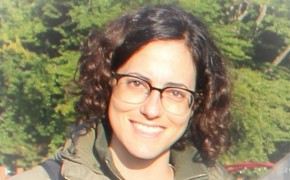A public demonstration biorefinery where companies can perform scale-up experiments of biomass valorization, enabling their easier industrial development.
Castilla-La Mancha is a large Spanish region where the agri-food sector is very important and generates a great amount of waste biomass. A lack of knowledge related to biomass valorization and of facilities which carry out that valorization was detected by the Regional Government, so it developed the "Castilla-La Mancha Bio-Economy Region" (CLAMBER) project through the Regional Institute of Agri-Food and Forest Research and Development between 2013 and 2015. To address this lack, 2 actions were developed: an acquisition of knowledge through Pre-commercial Public Procurement for the carrying out of R&D projects with the aim of valorizing waste biomass generated; and the construction of a biorefinery on a demonstration scale: The CLAMBER R&D Biorefinery.
It is the first technologically advanced biorefinery at a demonstration scale in Spain, designed and built so that those companies or organizations that have developed at laboratory scale a new bioprocess for the valorization of biodegradable wet biomass or lignocellulosic biomass can perform scale-up experiments at a size very close to industrial to determine their technical and economic viability, as well as optimizing the operating parameters for the subsequent design and construction of the industrial plant. In short, the costs necessary to develop an idea industrially are greatly minimized. Moreover, management of the waste biomass through valorization makes the agri-food company processes more profitable.
Resources needed
The project had a final budget of 16.1 M€, 80% co-financed by ERDF funds and developed by a technical group with 5 workers and relied on the scientific technical advisory services of CIEMAT.
Nowadays, CLAMBER Biorefinery has an annual investment of 1.4 M€ from the RGCLM and has 11 qualified workers
Evidence of success
During the CLAMBER Project, 19 R&D Projects with a total budget of 7.08 million euros and related to waste biomass valorization were developed and a R&D Biorefinery that can treat 1 ton of dry lignocellulosic biomass per day to produce bioproducts was constructed.
Since then, Castilla-La Mancha has developed its own bioeconomy and circular economy strategies and CLAMBER R&D Biorefinery is carrying out projects whose budgets total 1.3 million euros.
Difficulties encountered
The main difficulty was the public procurement procedure that involved many formalities and long time periods. Also, there was no experience, at least in Spain, of Pre-commercial Public Procurement, so it was very difficult to introduce it both to the public procurement department and to companies.
Potential for learning or transfer
The execution of the CLAMBER Project is a good example of public investment in Bioeconomy. In Castilla-La Mancha it has improved the biotechnology activity of companies related to biomass valorization and production of bio-based products and, nowadays, these companies are partners in or even contractors for the CLAMBER R&D Biorefinery in various projects.
Additionally, a very good way to improve the investment in biotechnology in a region is to construct a demonstration facility that attracts companies to work on it and to locate nearby.
Please login to see the expert opinion of this good practice.
Tags: Circular economy, Energy








